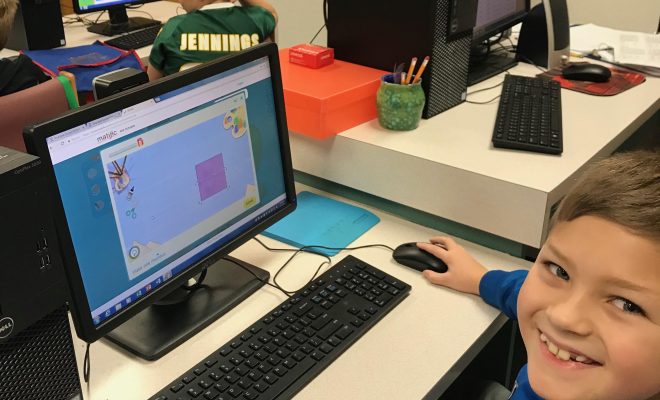Disengaged Students, Part 13: Athletes as Heroes

In this 20-part series, I explore the root causes and effects of academic disengagement in K-12 learners and explore the factors driving American society ever closer to being a nation that lacks intellectualism, or the pursuit of knowledge for knowledge’s sake.
The worship of celebrities and athletes in contemporary culture perpetuates the devaluation of intellectual thought. Particularly when it comes to impressionable children, the way certain Americans (and not others, often equally worthy) are placed on pedestals steals some validity from intellectual pursuits.
The Legend that Michael Built
Those learning to become teachers today may not quite remember the phrase “Be Like Mike” which had a catchy, accompanying song and was all the rage during the height of the Chicago Bulls three-peat championship runs in the 1990s. You couldn’t turn on a television in the mid-90s without catching a Gatorade, Chevrolet or Fruit of the Loom commercial starring Michael Jordan. Chicago’s United Center is often called “the house that Michael built” and the National Basketball Association’s total television revenue grew $877 million over the course of Jordan’s career. Jordan was a goldmine for the products he endorsed in part because of his prowess on the court, but also because people really liked him.
The story of Jordan getting cut from his high school basketball team and then rising to become the best basketball player of all time, with six championship rings to prove it, resonated with ordinary people who had faced their own adversity. He was a symbol of how the great American characteristics of hard work, determination and rugged individualism could combine to create a superstar. That his talent on the court was incredible goes without saying. But the deep adoration he enjoyed from fans around the world ran deeper than the points he tallied on the scoreboard or the number of times in a season he earned the elusive “triple double.” People did not just want to BE like Mike. People liked Mike.
In a 2013 column that asks the questions “Do I Still Want to Be Like Mike?” writer Kelly Scaletta takes a retrospective look at the absurdity of an entire generation putting Jordan on a pedestal. Gambling addiction, paternity lawsuits and what was, at the time, the most expensive divorce in history (complete with millions in hush money to a mistress) have all pointed to a man who may not quite have been a model of integrity for his own kids, let alone everyone else’s. Even during his Hall of Fame speech Jordan showed a petty, narcissistic side by devoting much of his podium time to criticizing his nay-sayers and airing old grudges. Scaletta admits that Jordan was and is a great basketball player, but points out that his “character flaws are many.” He sums up the Jordan idolization, indicative of a much larger cultural norm, by saying:
Jordan is fascinating in that he’s a perfect example of what the problem has become with the way we view the American athlete. We demand them to be more than what they are, then we despise them for being what they aren’t. If they win, we forgive them for not being what they never weren’t.
Athletes Behaving Badly
Jordan is not the only professional athlete who has been adopted as a role model due to his professional prowess in spite of glaring character flaws. Look at the narcissism of current NBA star Dwight Howard, who reportedly has fathered six children by several different mothers. Howard’s outspoken, non-team-player attitude is at least more straightforward than the model of austerity that was fostered during Jordan’s golden years. The news that New England Patriots’ player Aaron Hernandez was arrested for a shooting death, and suspected for several others, sent shockwaves through the sports world and beyond. As more details emerged on the violent past of the former Florida Gator, who played alongside devout Christian and sometimes-missionary Tim Tebow, other players, coaches and friends of Hernandez suddenly remembered his sketchy and questionable past actions. Maybe he should not have been given a pass in life simply because he was an effective blocker. Maybe his athletic ability should not have overshadowed the basic tenets of his character.
And who could forget the sex scandal surrounding golf megastar Tiger Woods? A fixture of the golf world from his teenage years, Woods passed up the traditional adolescent rites of passage that accompany high school graduations, college party weekends, and post-college apartment living for the privilege his athletic ability afforded. After his marriage to model Elin Nordegren in 2004, Woods’ image as a clean-cut young man was transformed to one of an ideal family man. Though Woods never asked to be the poster child, or man, for young golfers, young black athletes, or young husbands, he became a role model in all three arenas. When his shiny gold star was scratched, he inadvertently disappointed millions and then had to apologize for it. Woods was forced to say “I’m sorry” for not being what he never wasn’t.
The stars like Woods or Jordan or Hernandez are not to blame for the American cult of unthinking hero-worship. Sure, they could act a little nicer, and not cheat on their wives, and not commit violent acts, but the core problem does not lie in their actions – it lies in Americans’ blind faith where athleticism is concerned. The same is true of celebrities, who it can be argued have even less admirable talents than athletes. When was the last time you heard a child name an astronaut or leading genetic researcher as his or her role model? Where is the love for philosophers, and authors, and Nobel Prize winners? The greatest problem is not the athletes themselves, but everyone else who worships them as more than what they truly are: flawed human beings.
There is something to be said, of course, for realistic role models who are viewed as humans and not gods. But if we, as a culture, expect our children to develop intellectualism and rationalism than we need to value critical thinking and learning over physical ability or attractiveness.
Which is more admired: a kid who earns a college scholarship because of what he knows, or one who earns it to bring the school a football championship? We cannot change the values of Americans overnight and have no control over what they view at home or in the media. Educators have the special responsibility of making an impact on students’ lives, and their desire for intellectual pursuits, in a very limited span of time. It’s an uphill battle but one that is better fought with recognition of the current state of stars as role models and its impact on K-12 academic disengagement.





